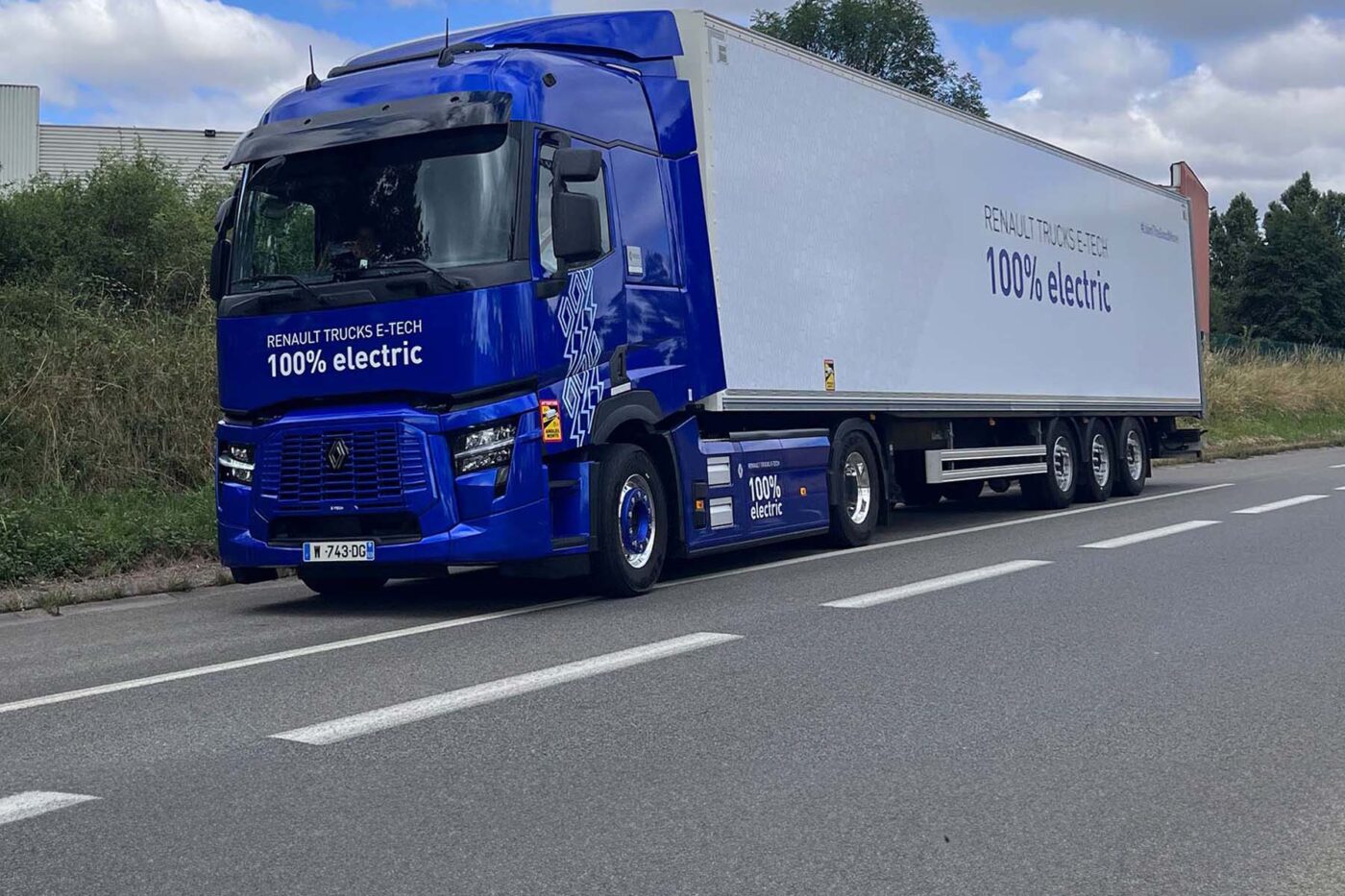
Renault Trucks is getting ready for electric long-distance freight transport
There they sat in the rain outside the Renault Trucks hall in Lyon: three electric trucks, two vans with electric drives and a cargo pedelec – the French manufacturer’s entire electric portfolio. However, there is room for one more. During a presentation during the Electromobility Days at Renault Trucks’ headquarters in France, Francois Savoye, VP of Electromobility Solution Offer at Renault Trucks, casually mentioned that the company will also offer an electric truck with a 600 kilometres range from 2026.
It will be part of the E-Tech T series, which Renault Trucks already offers with a range of up to 300 kilometres and three to six batteries (360 to 540 kWh). The manufacturer is still holding back on the technical details at this stage. What was revealed to us on the sidelines of the event: the new long-haul electric truck will have a new electric axle, presumably the same one that sister company Volvo Truck presented at the IAA in Hanover in 2022. It offers more space for batteries, as the electric motors and transmission are integrated into the rear axle. For this reason, the new Renault truck can be equipped with eight batteries instead of just up to six.
Savoye also revealed that the batteries will have a different design but does not go into further detail. It is thus unclear whether this refers to the different design of the pack, which will be mounted under the vehicle rather than on the side.
Due to the weight, Renault Trucks currently relies on NCA (nickel-cobalt-aluminium) for the batteries and not LFP (lithium iron phosphate). Just to put this into perspective: according to Renault Trucks, the six batteries in the E-Tech T already weigh three tonnes. An LFP battery would be at least twice as heavy. Due to the higher energy density, an NMC battery cell offers 230-250 Wh/kg, and an NCA cell even 322 Wh/kg. With an LFP battery, it is only 130-160 Wh/kg.
When asked whether a new cell chemistry would be used for the long haul, the only answer was: “I didn’t say that.” The figure 800 kWh is also mentioned – the expected maximum battery capacity of the new long-haul electric truck. There should be certainty as early as 2025, as the first prototypes will be on the road next year. Series production will begin in 2026 at the Renault Trucks plant in Bourg-en-Bresse, around 80 kilometres from Lyon.
One thing is already set in stone – the long-haul electric vehicle will no longer be able to charge with alternating current (AC). Unlike other manufacturers, Renault Trucks’ existing EVs are capable of both AC and DC charging. However, the long-haul truck will only have one CCS and one MCS charging socket.
Becoming a pure EV manufacturer by 2040
Renault Trucks is certain that the future will be electric. And that it will most likely be battery-electric, but the truck manufacturer is also looking at solutions such as hydrogen fuel cells – just in case. But Marc Lejeune, Business Intelligent Director, emphasises that biofuels will probably be needed for aviation and shipping, while green hydrogen, which can also only be produced in limited quantities, is needed for industry. That leaves batteries for road freight transport.
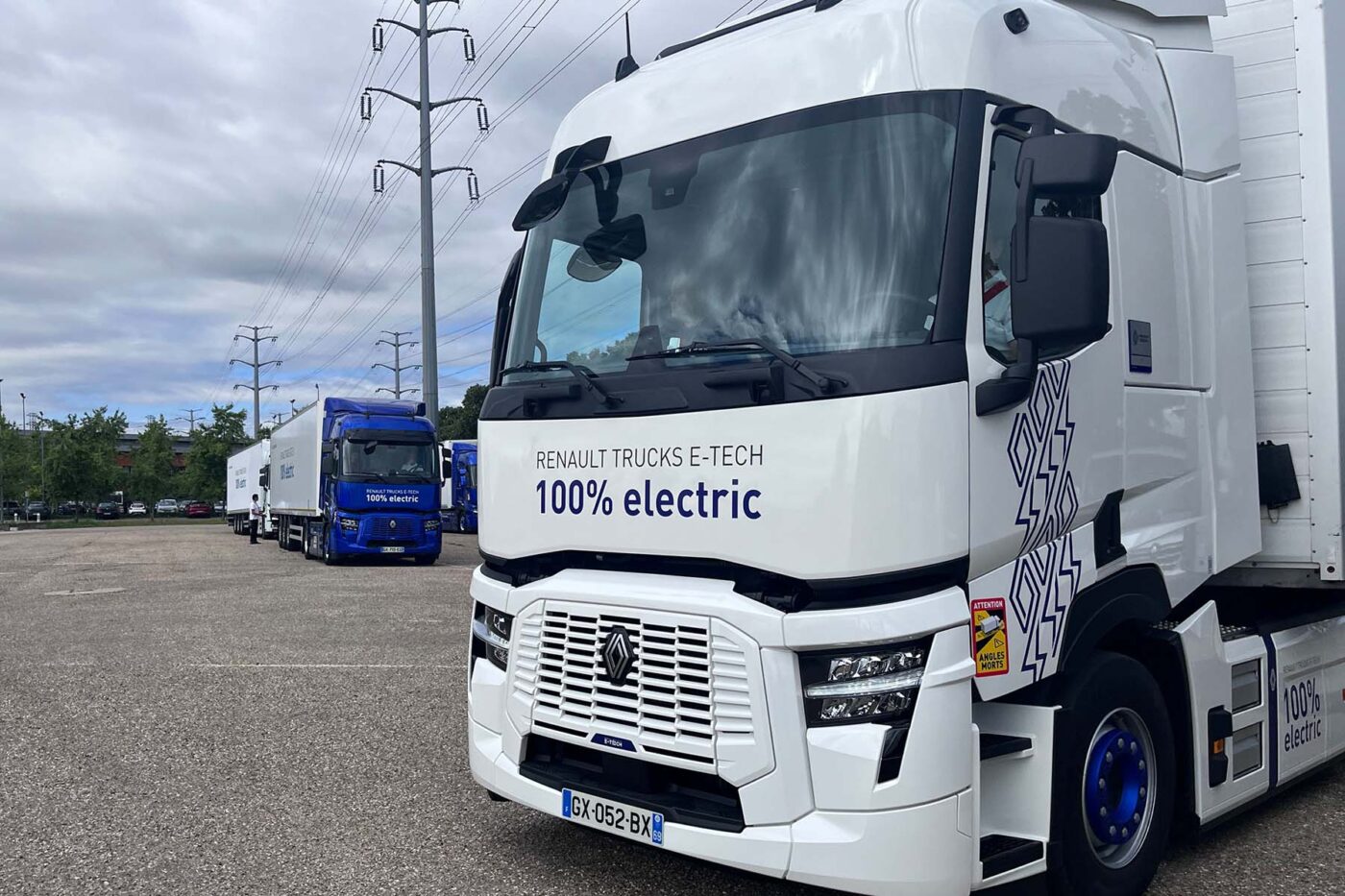
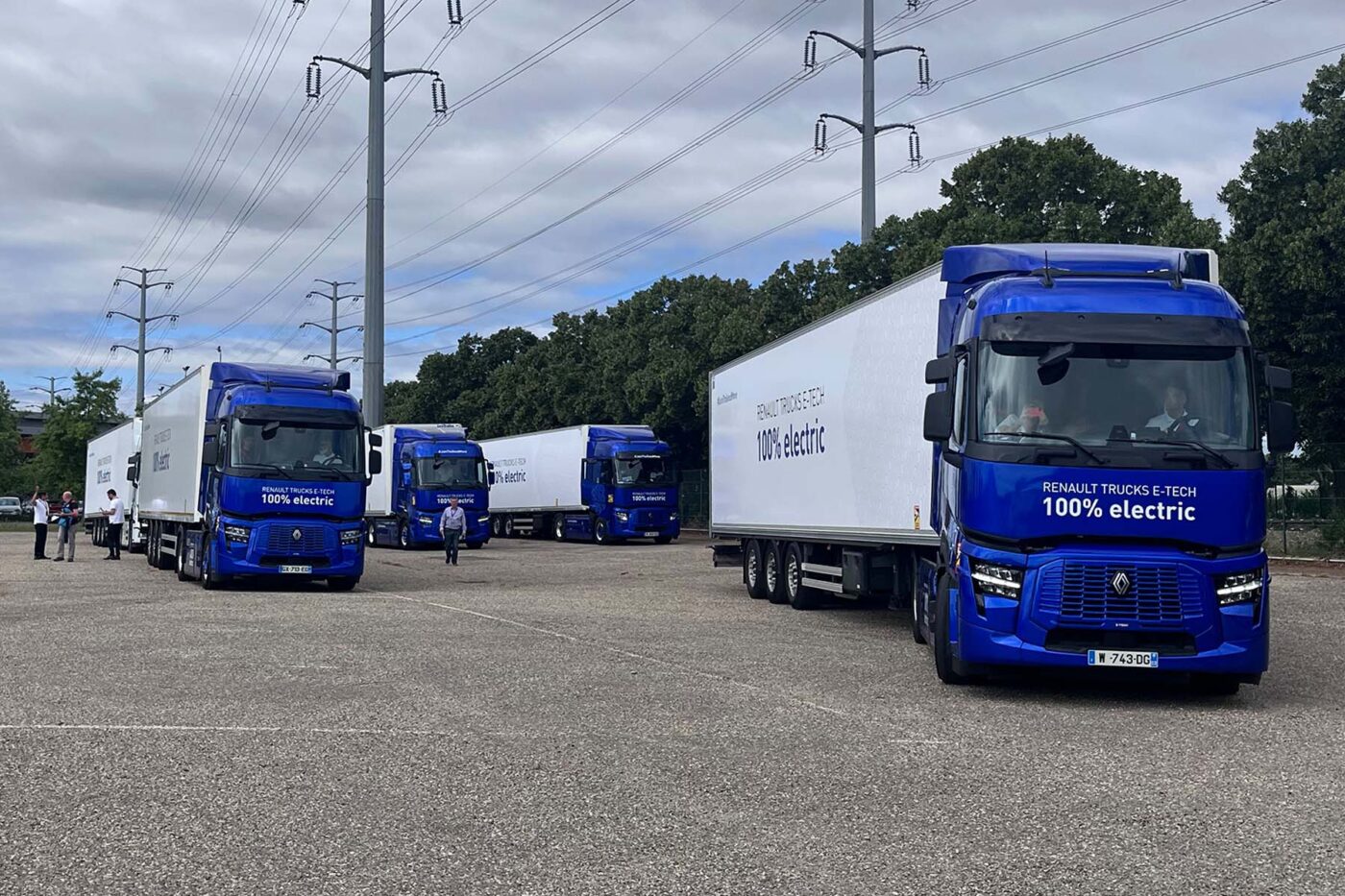
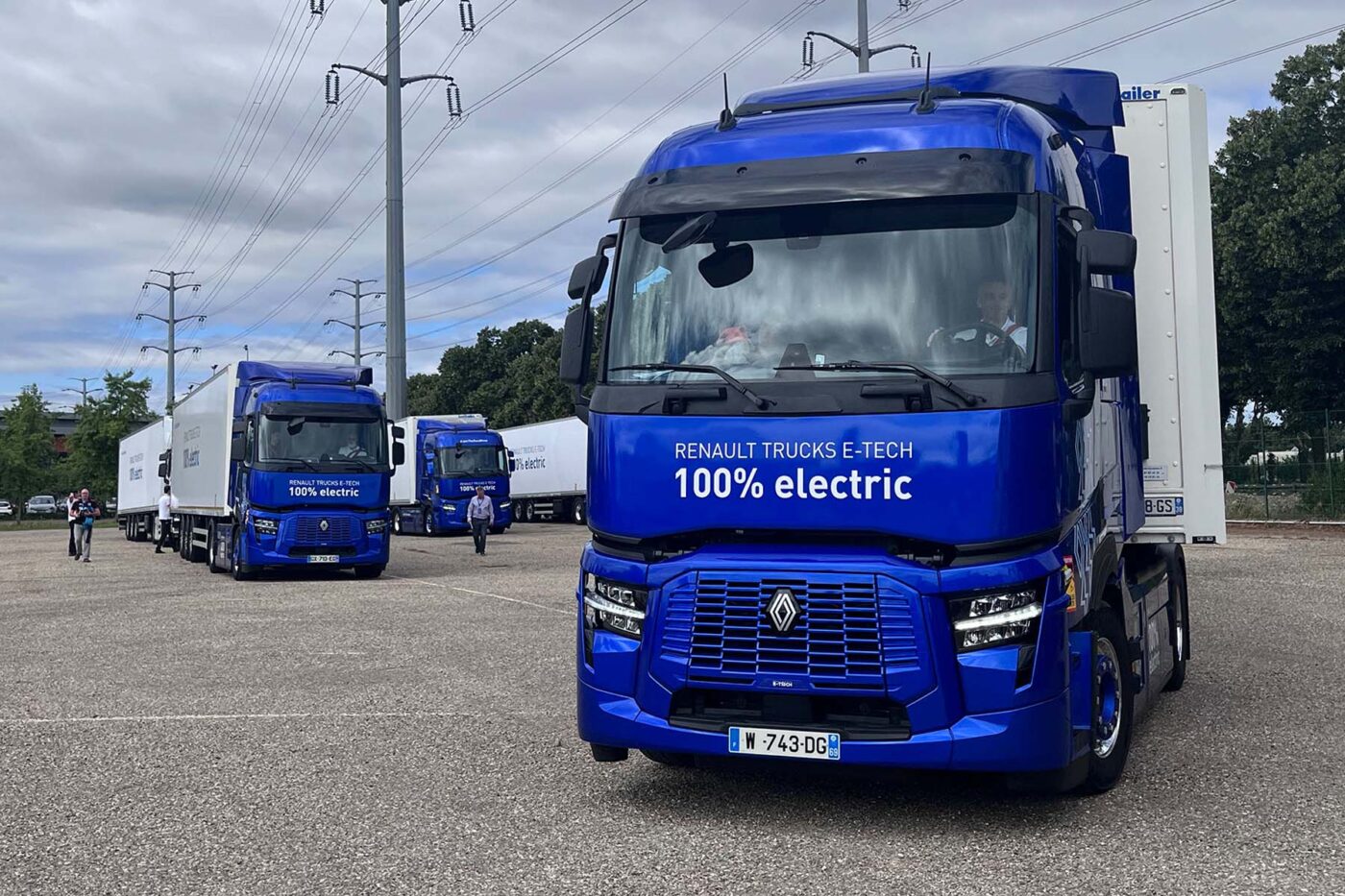
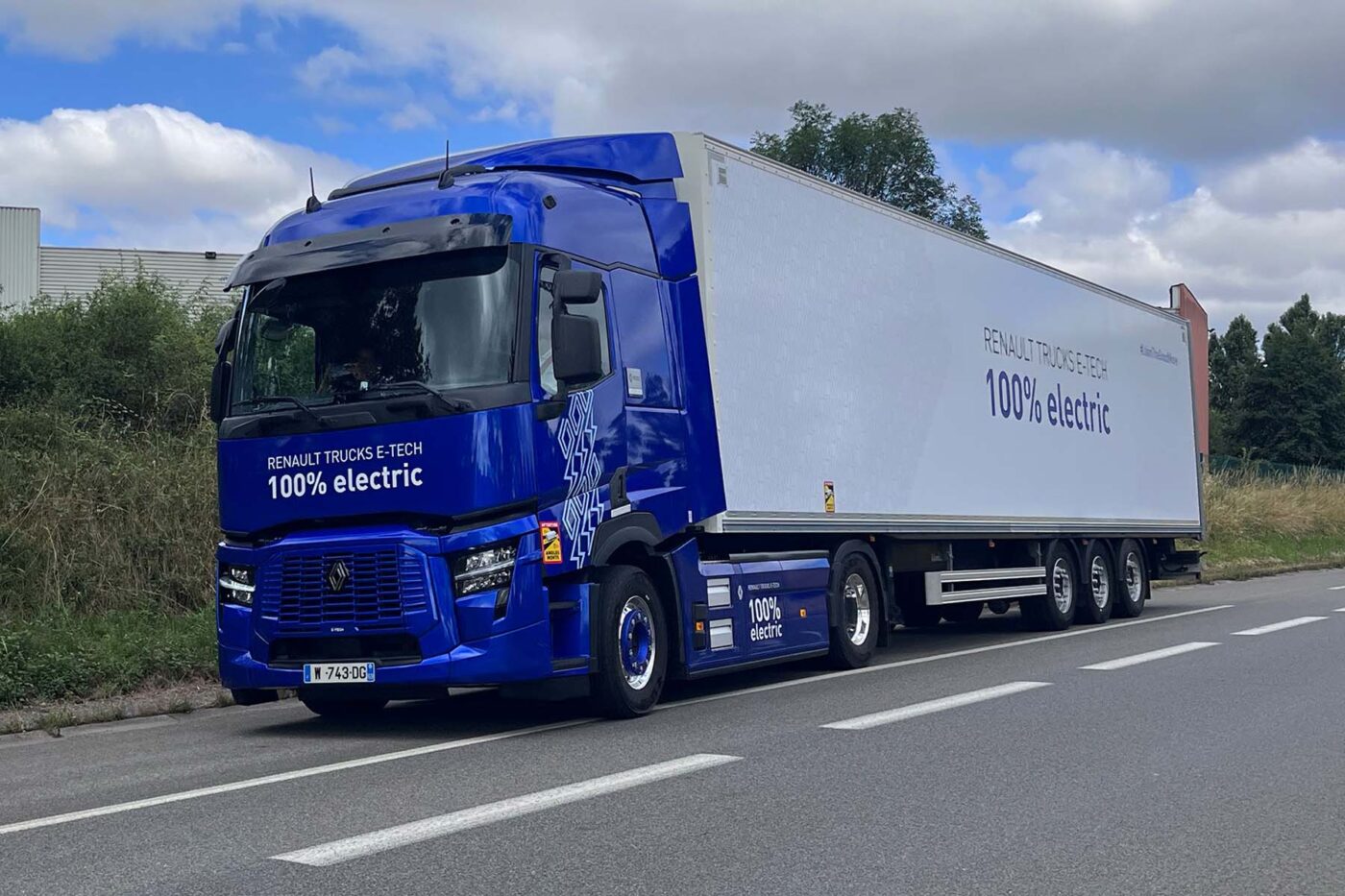
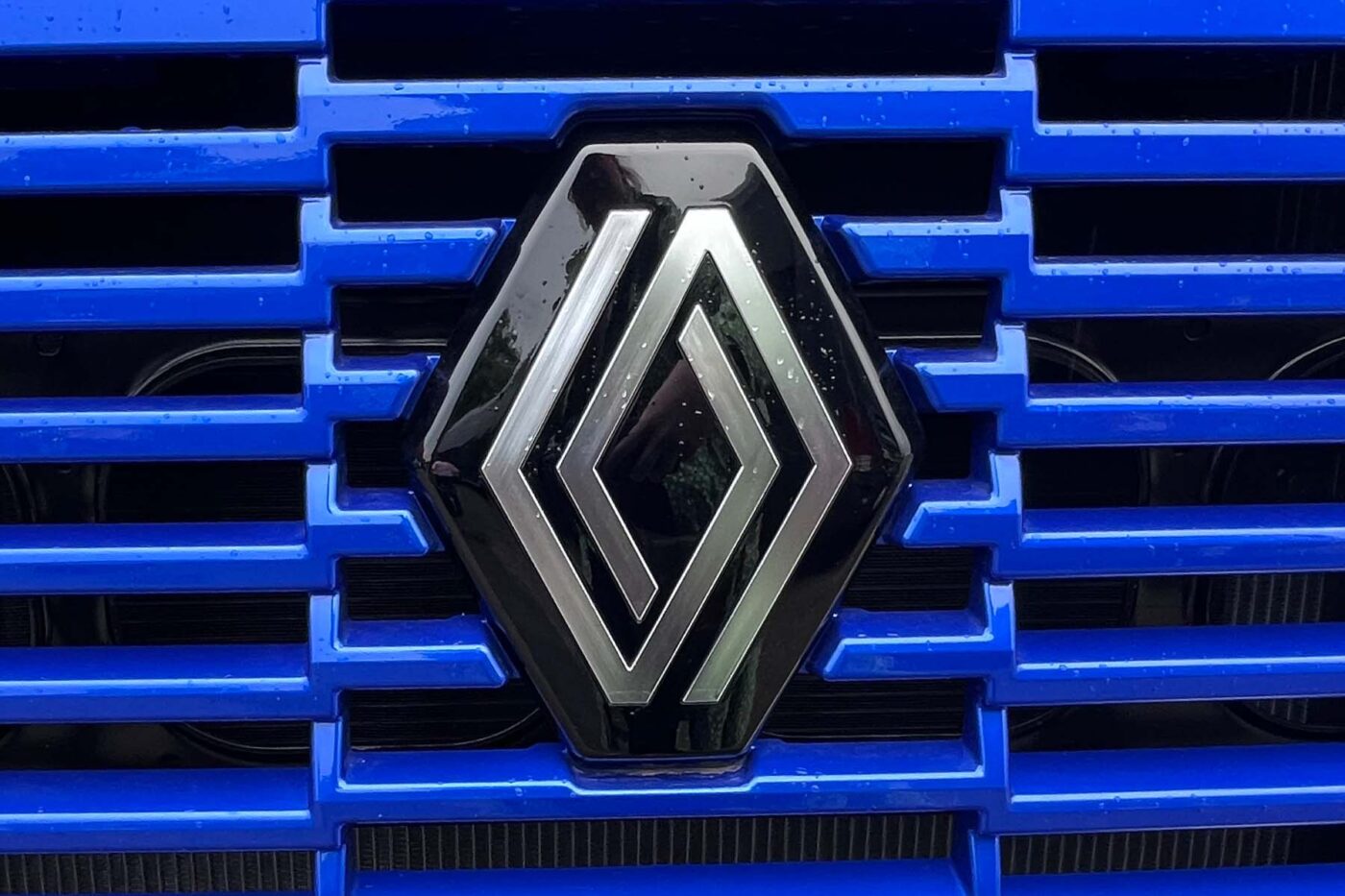
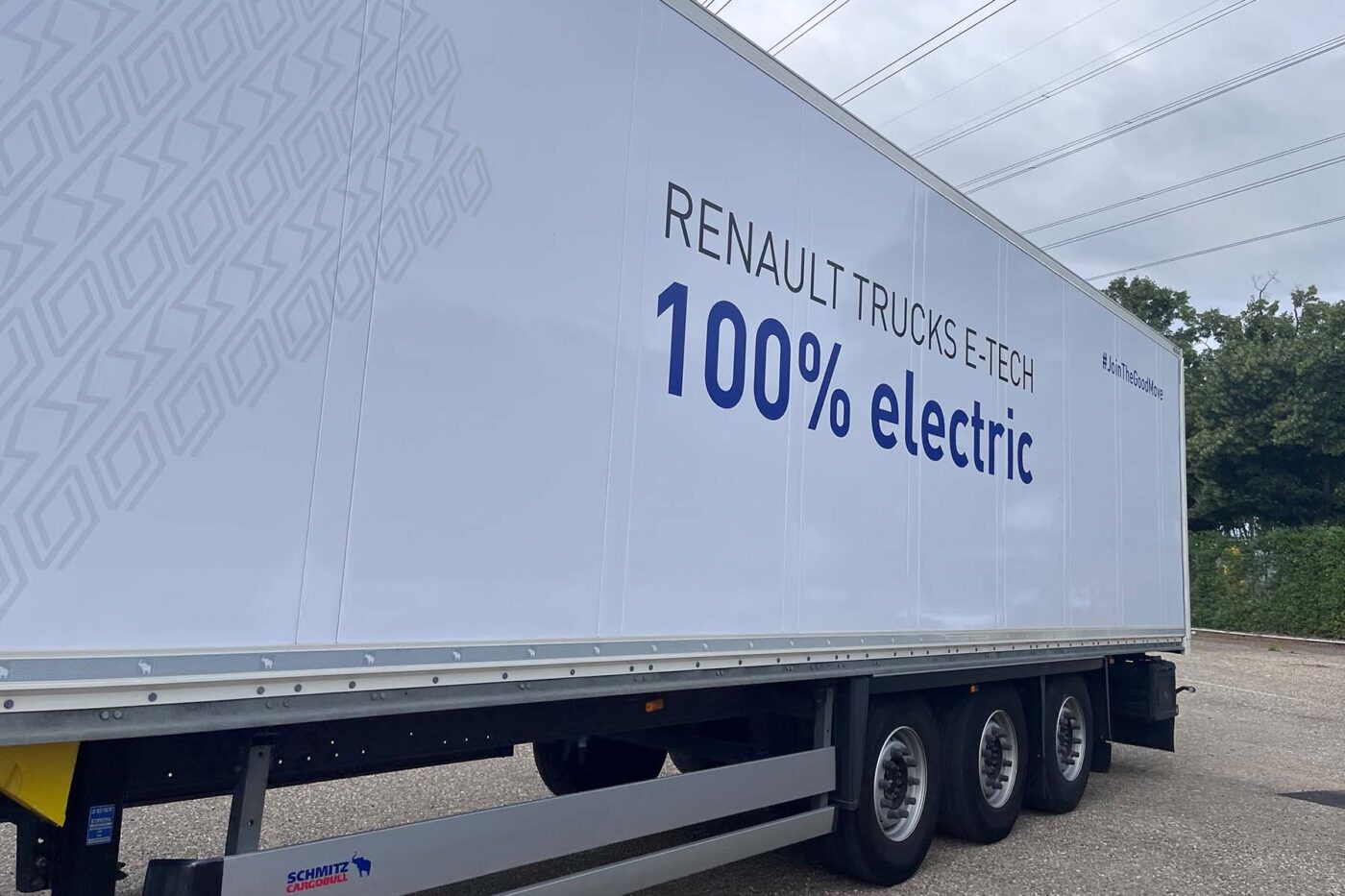
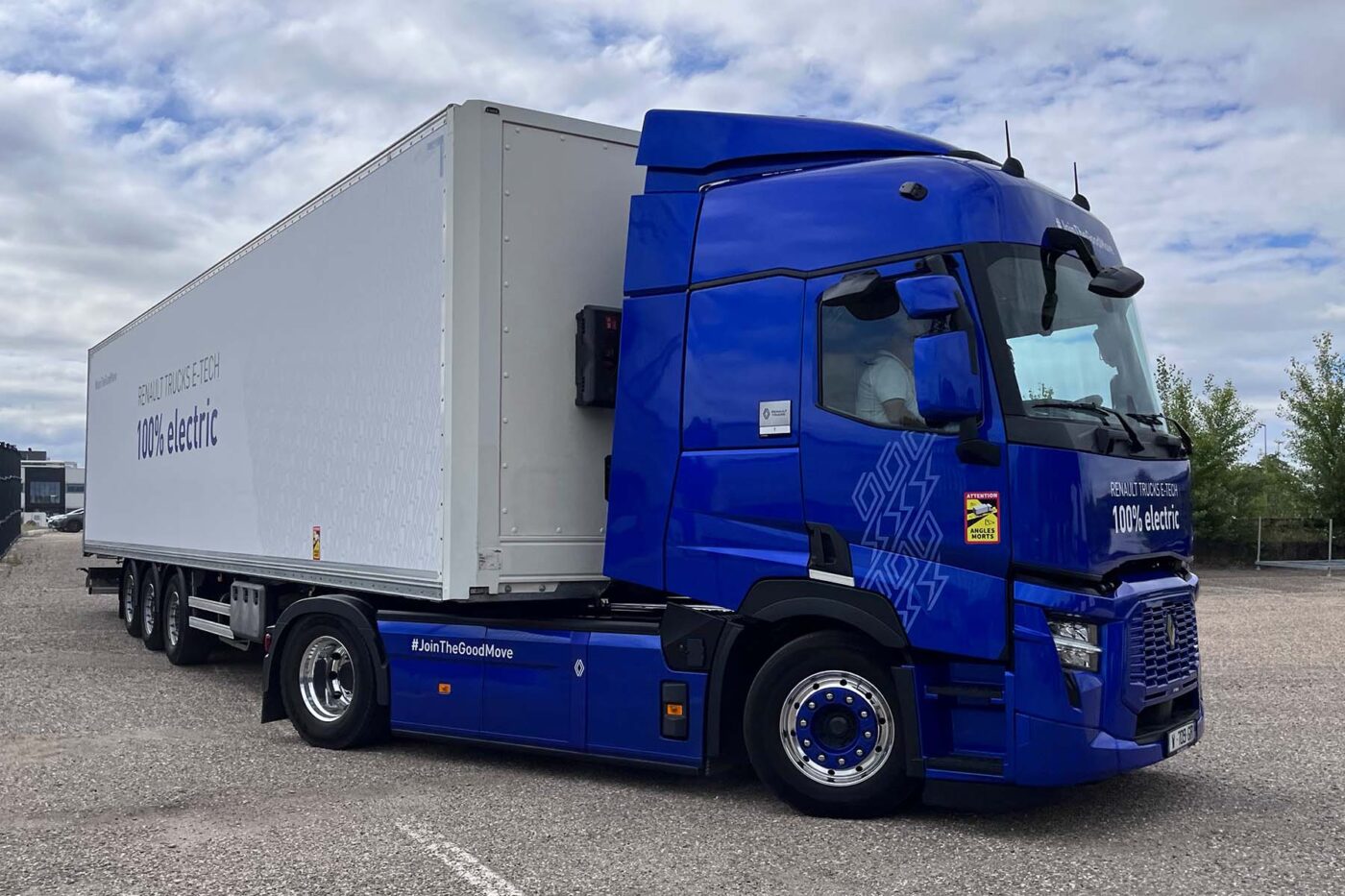
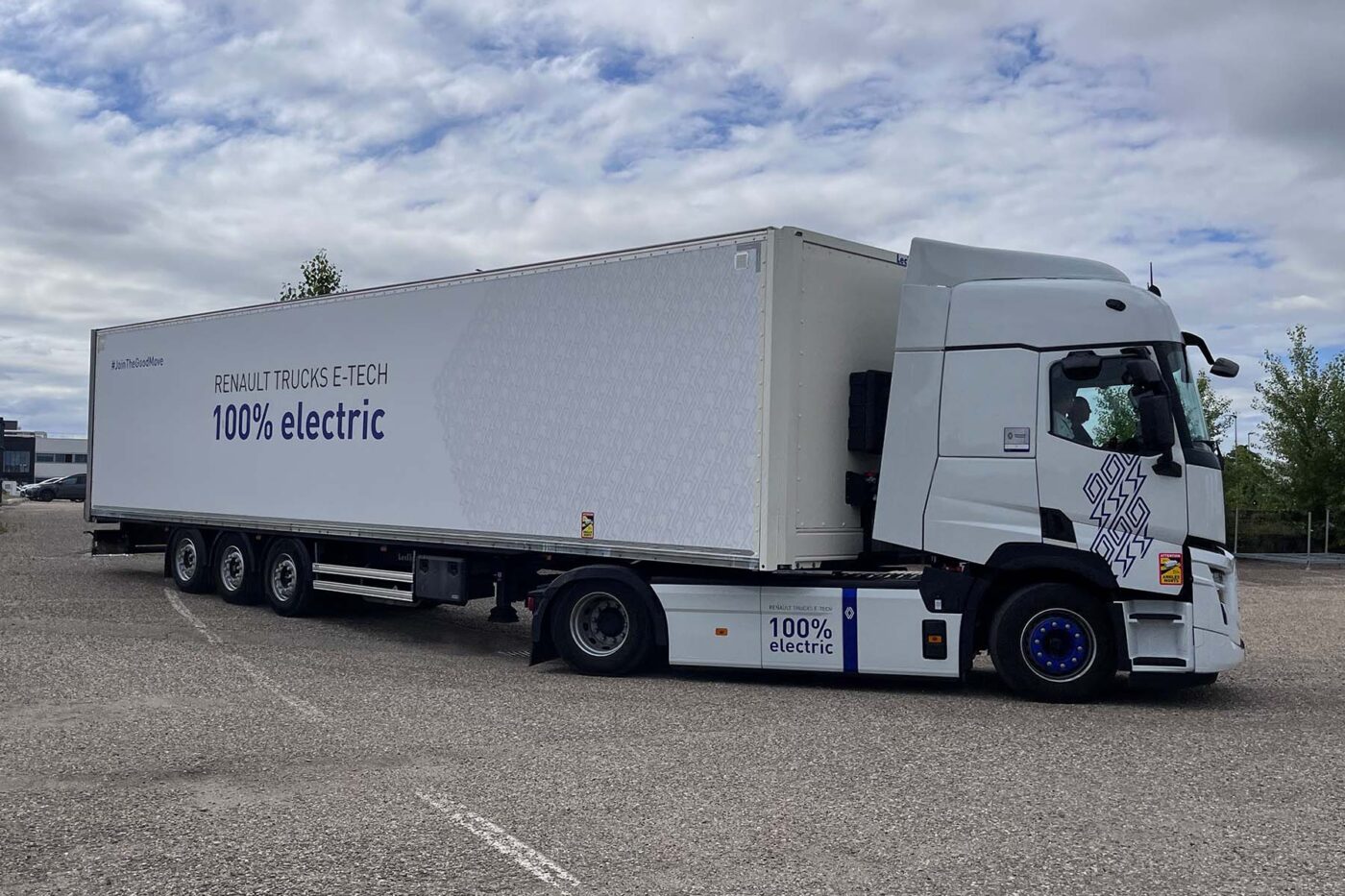
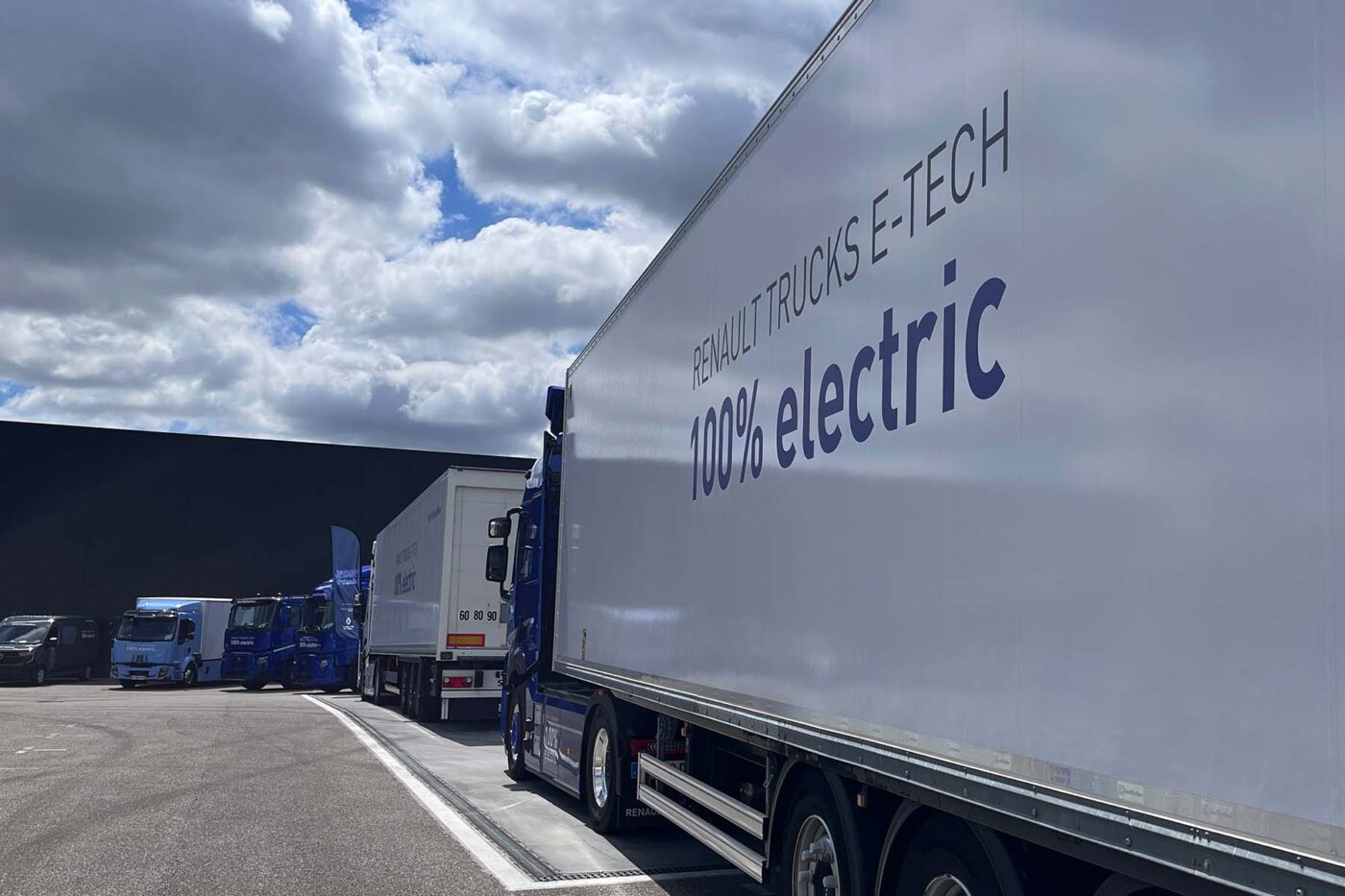
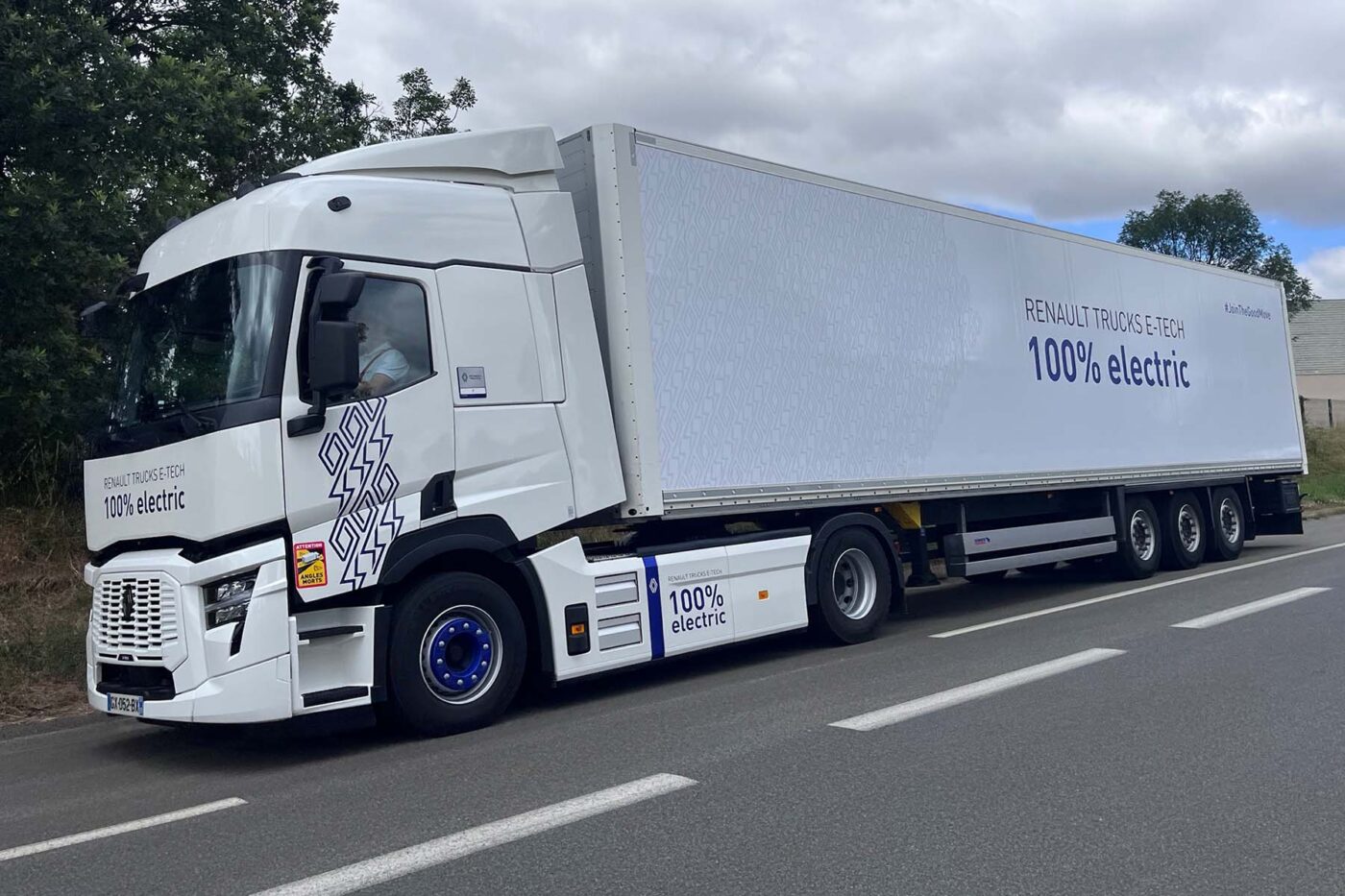
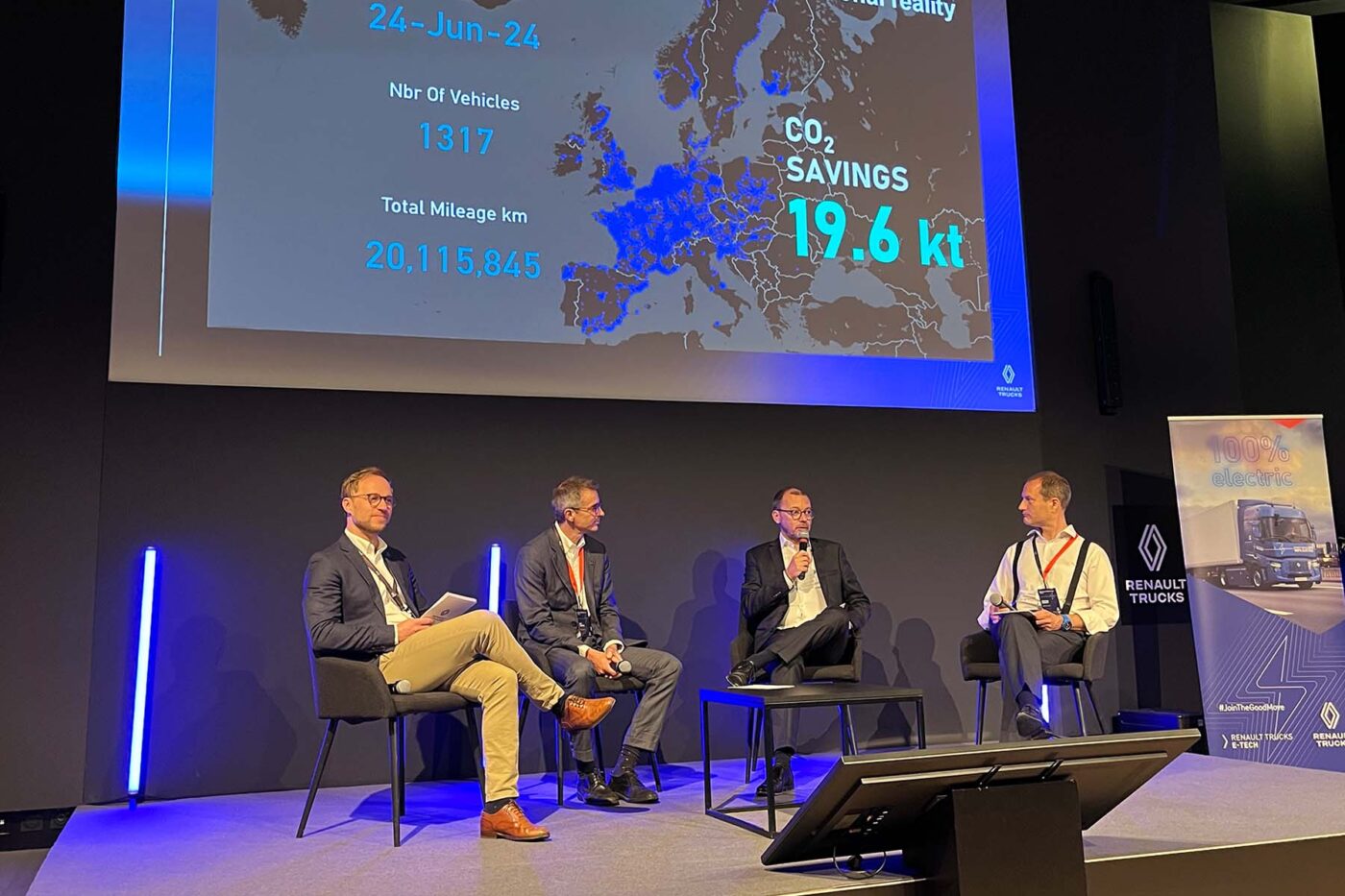
A total of 1,317 electric vehicles from Renault Trucks are already on Europe’s roads (as of 24 June 2024). Together, they have already covered more than 20 million kilometres.
“We believe that we should be part of decarbonisation,” says Christophe Deshayes, Senior Vice President at Renault Trucks Europe, about the manufacturer’s long-term strategy for electric vehicles. “We need to offer a solution for the decarbonisation of logistics. We see this as a unique opportunity for Renault Trucks to take a different position in the markets and offer our customers a complete ecosystem to help them decarbonise their business. That’s why we are investing a lot – perhaps even more than the competition – in resources, people, and the product, so that we can offer a solution.”
He explains that Renault Trucks launched an Equipment-as-a-Service (EaaS) offering in Europe in 2022 called Vertellus. It is a type of rental model in which customers can rent an electric truck for a certain period and pay based on the number of kilometres driven. According to Deshayes, the service is already available in Germany. “It’s like a trial programme,” he says. “You can keep the truck for three months, a year, or as long as you like to get to know and try out electric mobility.” But regardless of whether the truck is leased or paid for in full, Renault Trucks wants to help its customers optimise the use of electric vehicles and offers quarterly visits from experts who analyse the data collected from the trucks on mileage, charging, etc.
Renault Trucks has had electric light and medium trucks on the market since 2021 with the D and D Wide series. In the van segment, the Trafic E-Tech and the Master E-Tech complete the range – both of which have just been launched in the latest generation. Series production of the two electric heavy-duty trucks E-Tech T and E-Tech C started in November 2023.
The two electric heavy-duty trucks come from the plant in Bourg-en-Bresse, where journalists were also allowed to take a look behind the scenes today at the Electromobility Days. Two to three electric trucks are currently coming off the production line there every day, but the way the production facility is set up, it could be up to 15.
There are two production lines in total. On the first, only 4×2 tractor units are produced; all the others are assembled on the second line. There is no dedicated production line for electric trucks. 95 per cent of their production is integrated into the “normal production process.” Only for the last five per cent, i.e. the installation of the electric components, do they move over to the so-called ‘Renault Trucks E-Tech Factory.’ The final inspection, performance tests and test drives on the factory’s test track are again carried out alongside with the combustion engine vehicles.
As mentioned above, up to 15 T and C series electric trucks could be produced in Bourg-en-Bresse every day. That’s not a lot when you consider that a total of 28,660 trucks were built there last year. But that will be changing. In the past two years, Renault Trucks has already invested 70 million euros in Bourg-en-Bresse – and only in the production of the E-Tech C and T.
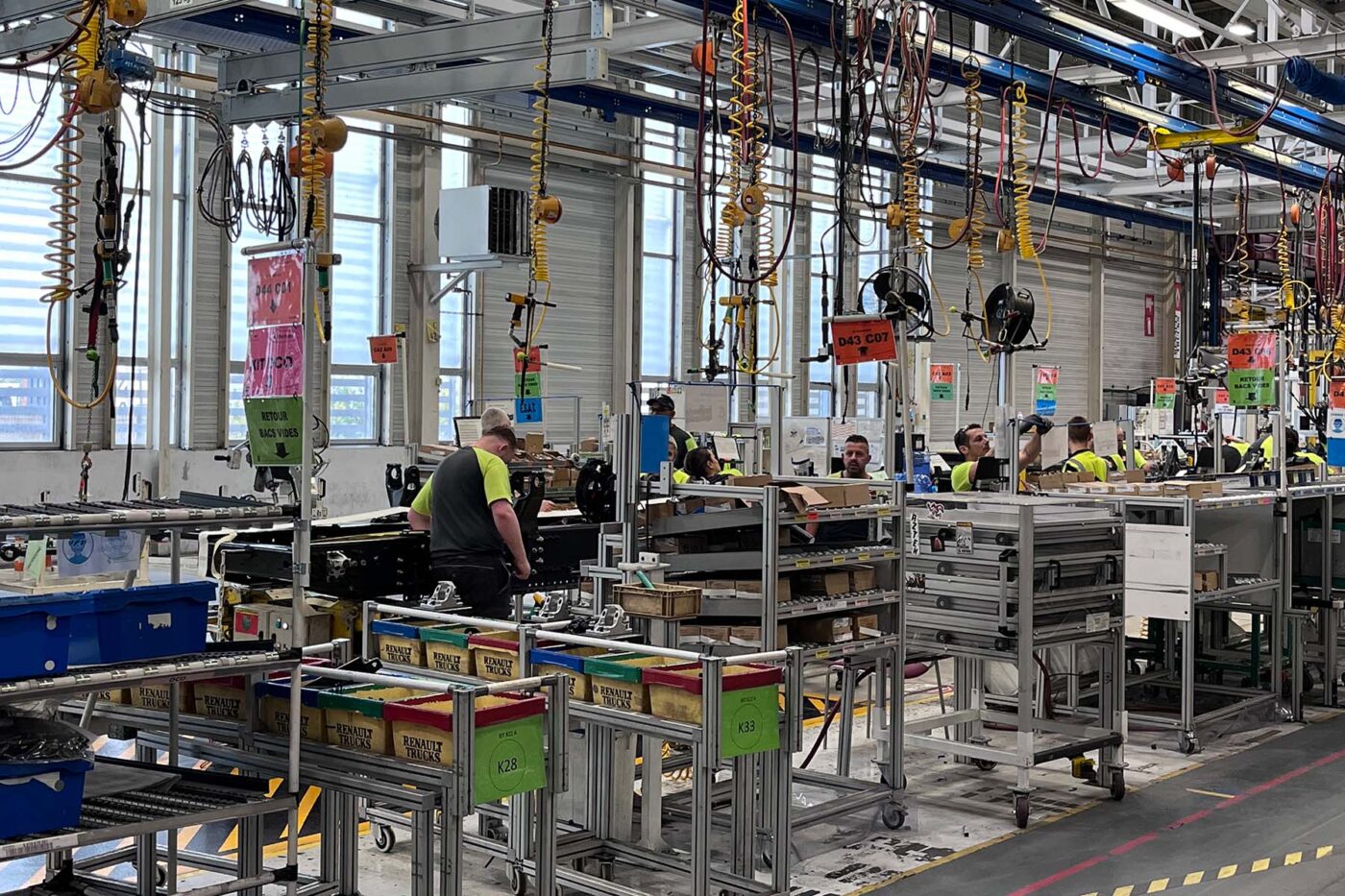
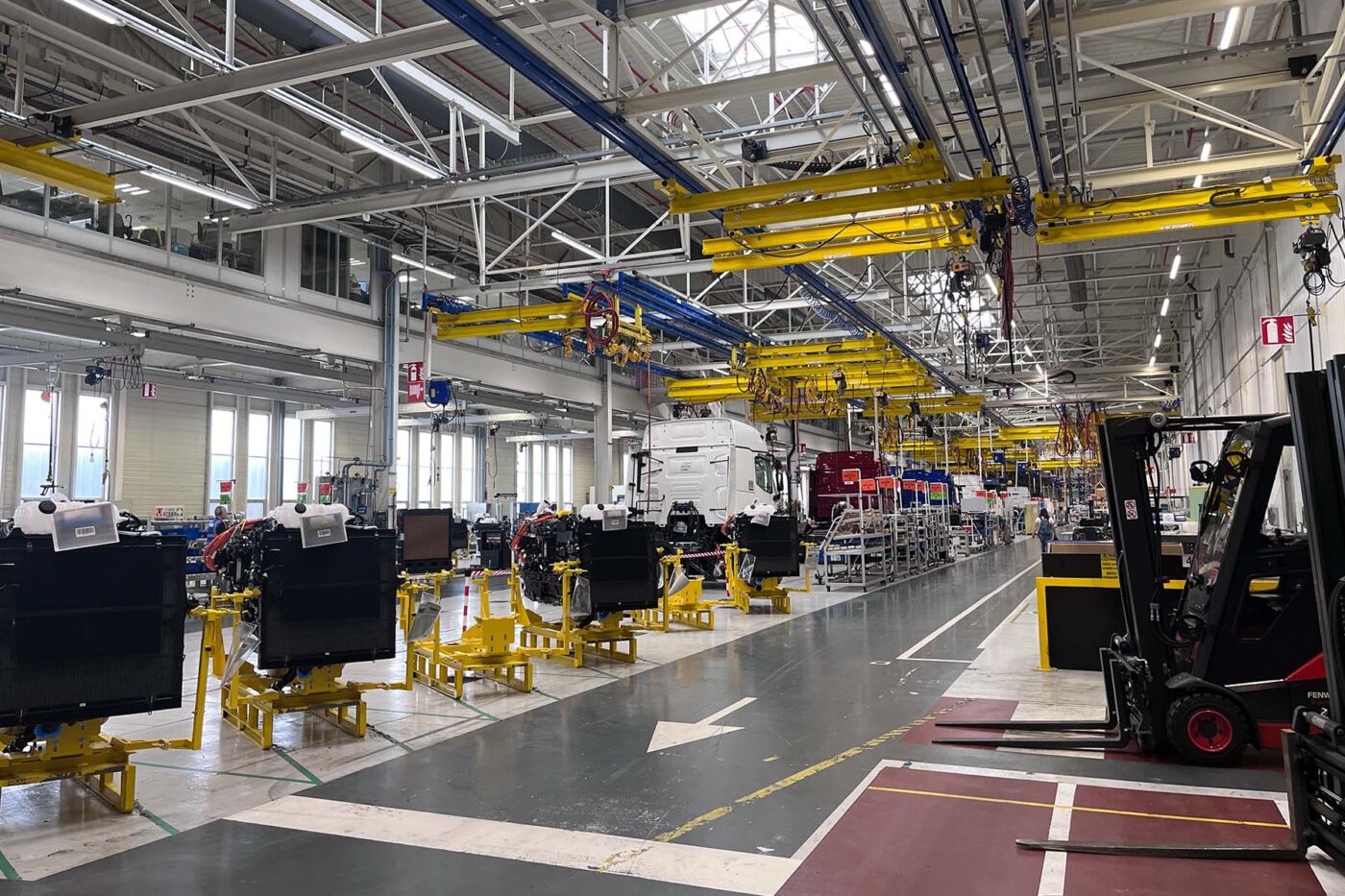
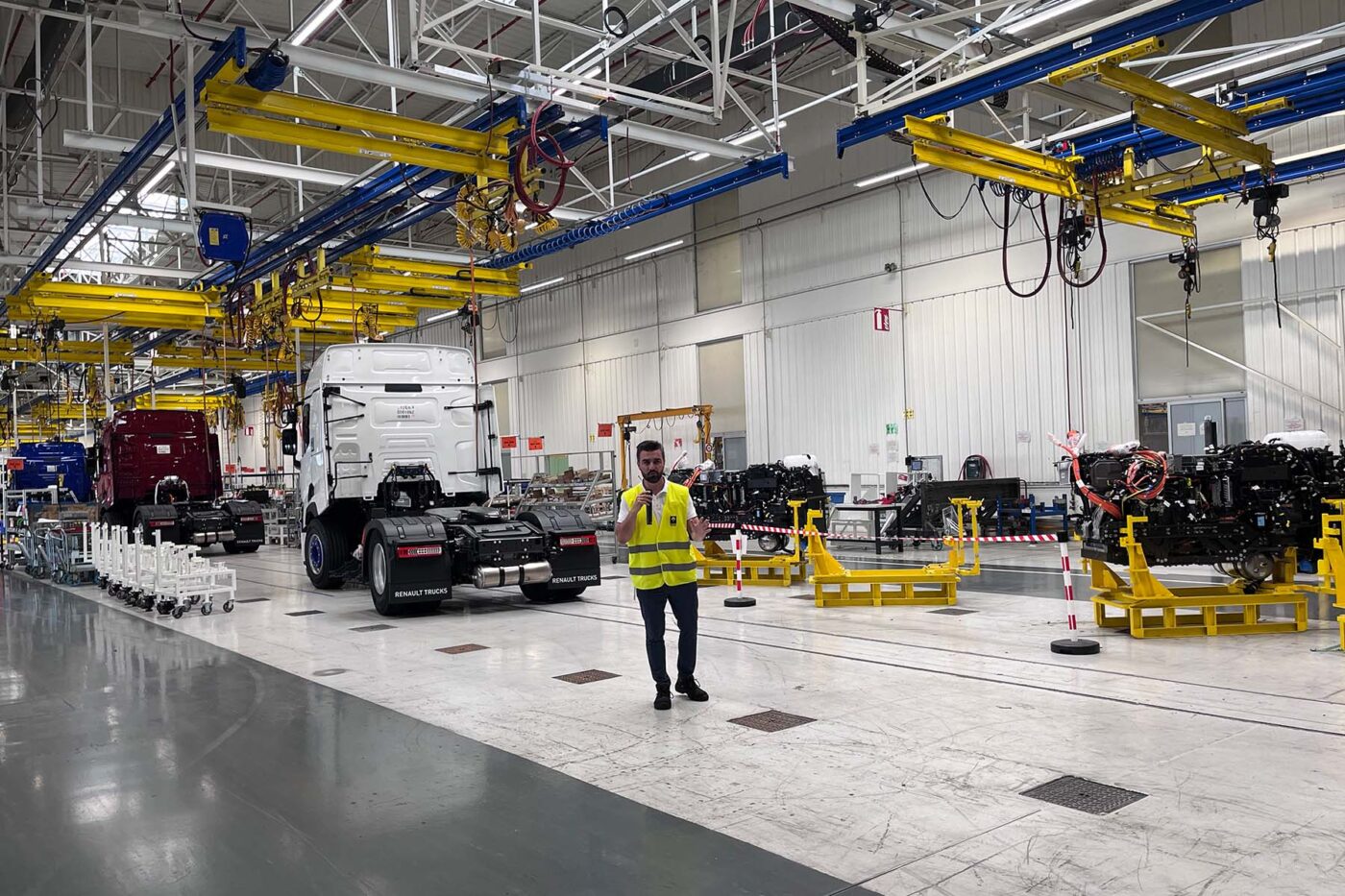
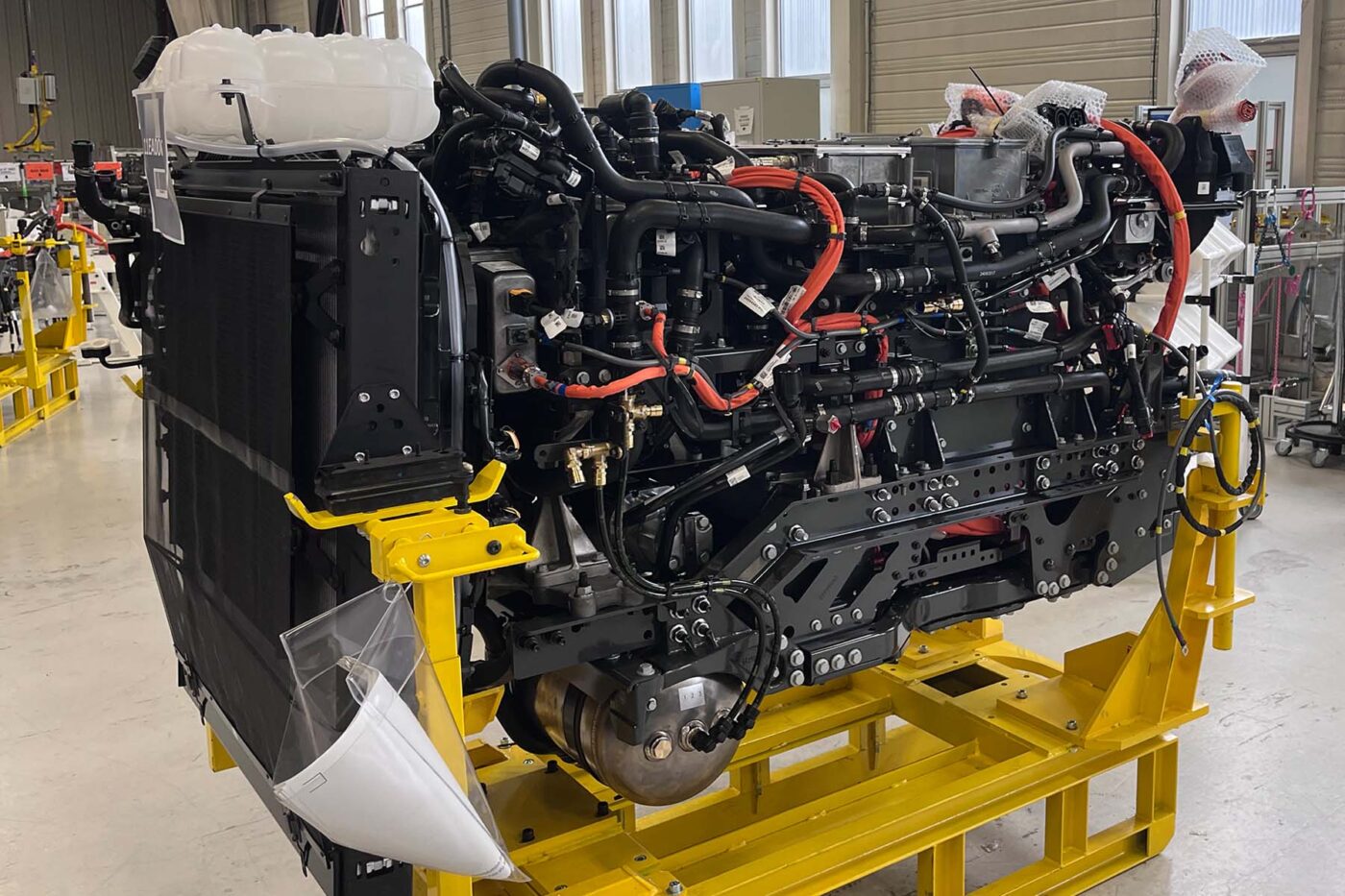
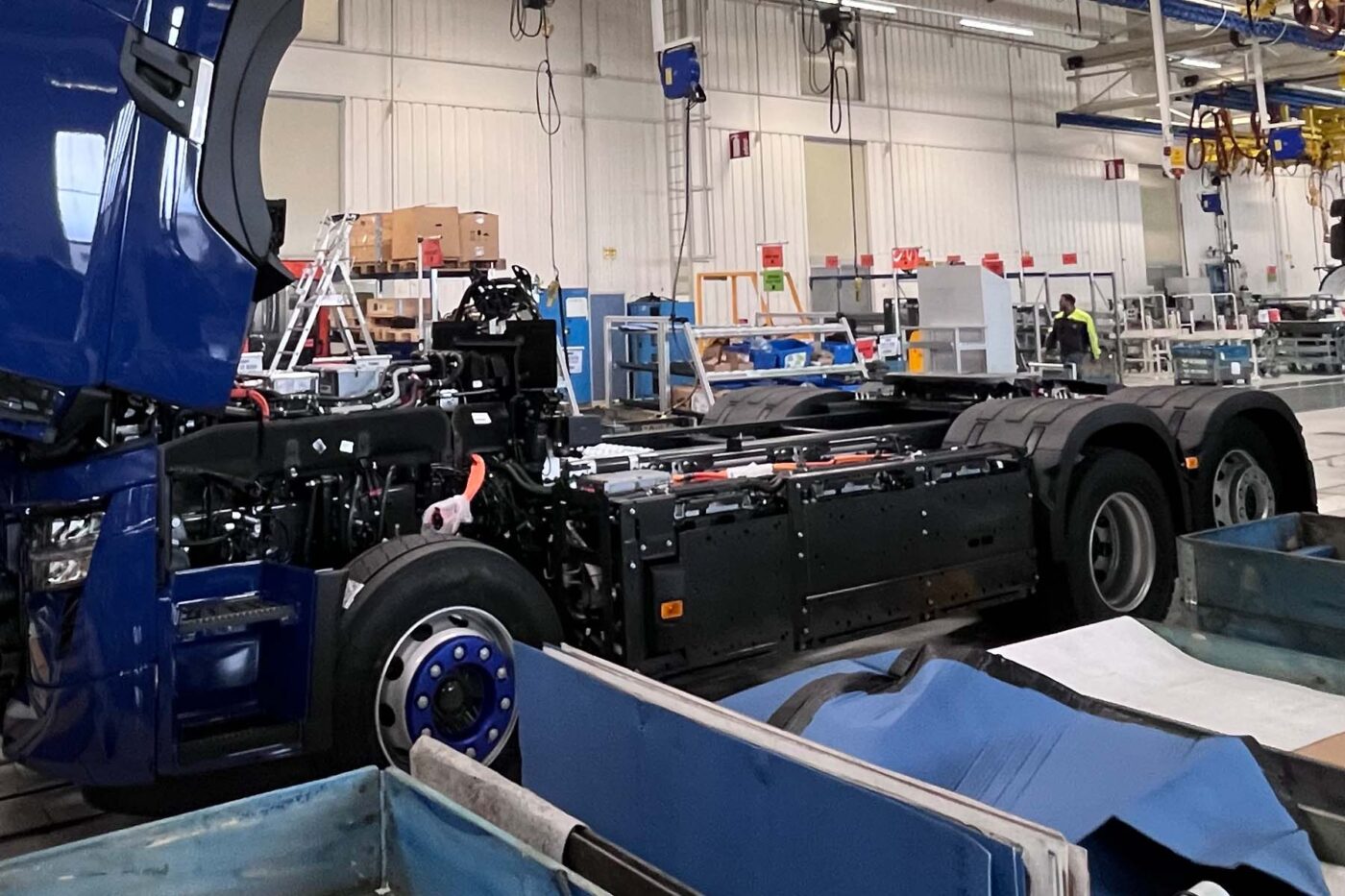
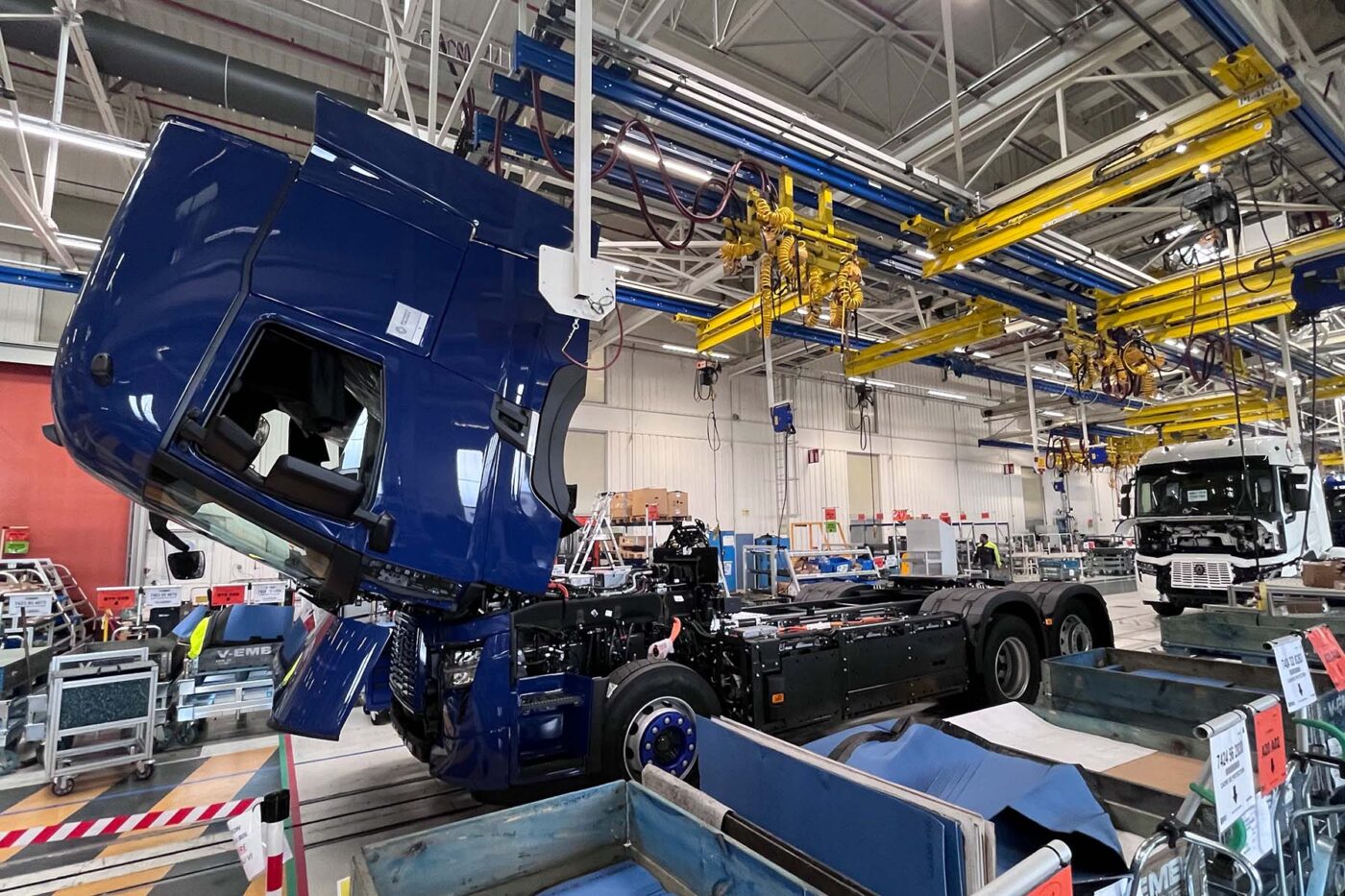
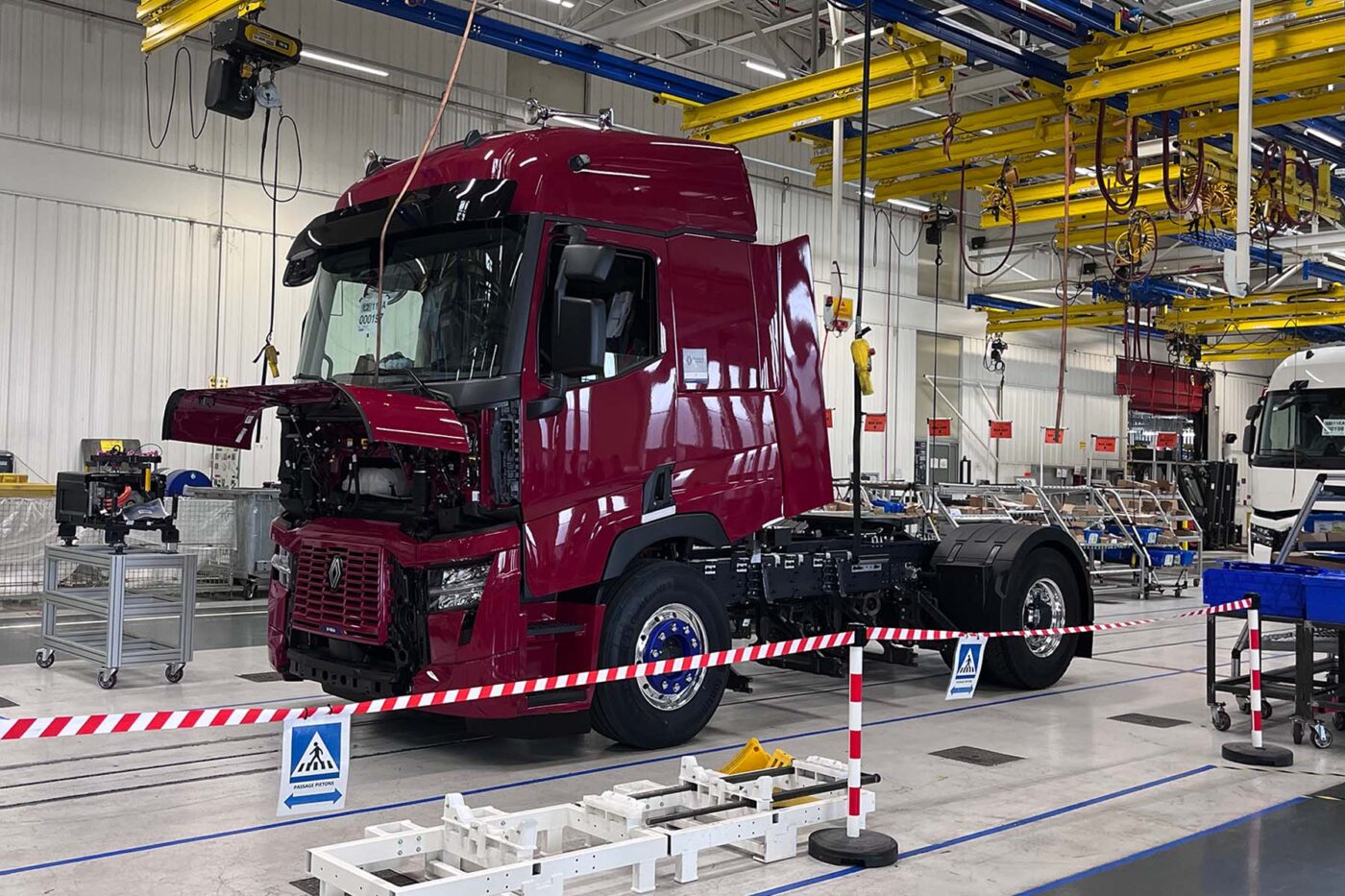
The plant will be further remodelled over the next four years. From 2040, the French want to sell only emission-free commercial vehicles, and by 2050, all Renault trucks will be emission-free. It is important to note that they are talking about emission-free, not battery-electric. Now, Renault Trucks has so far only launched battery-electric vehicles in the EV sector. But through its parent company Volvo Group, Renault Trucks is indirectly involved in the FC joint venture Cellcentric, for example, which in turn is working on the fuel cell. Some managers repeatedly emphasise that the last word has not yet been spoken. For others, however, the matter seems clear. From the outside, it appears that there is still some internal disagreement.
Leading by example
Agreed or not, at the moment Renault Trucks only offers battery-electric trucks. The French manufacturer wants to show that these can already replace their diesel counterparts in everyday operations, so it is now deploying five of its own electric vehicles between the axle plant in Lyon and the truck production facility in Bourg-en-Bresse.
These are of the type E-Tech T. Each of the 4×2 tractor units can transport 22 tonnes of material from Lyon to the truck plant 80 kilometres away. They each complete two outward and return journeys of 180 kilometres, covering 360 kilometres per day or 88,000 kilometres per year.
Renault used software called Range Simulator to predict the amount of energy each lorry would need for daily operation. It takes into account factors such as distance and topography. The result: the vehicles are charged overnight at the depot but also have to stop for a short 45-50-minute DC charge (and a driver break) during the shift.
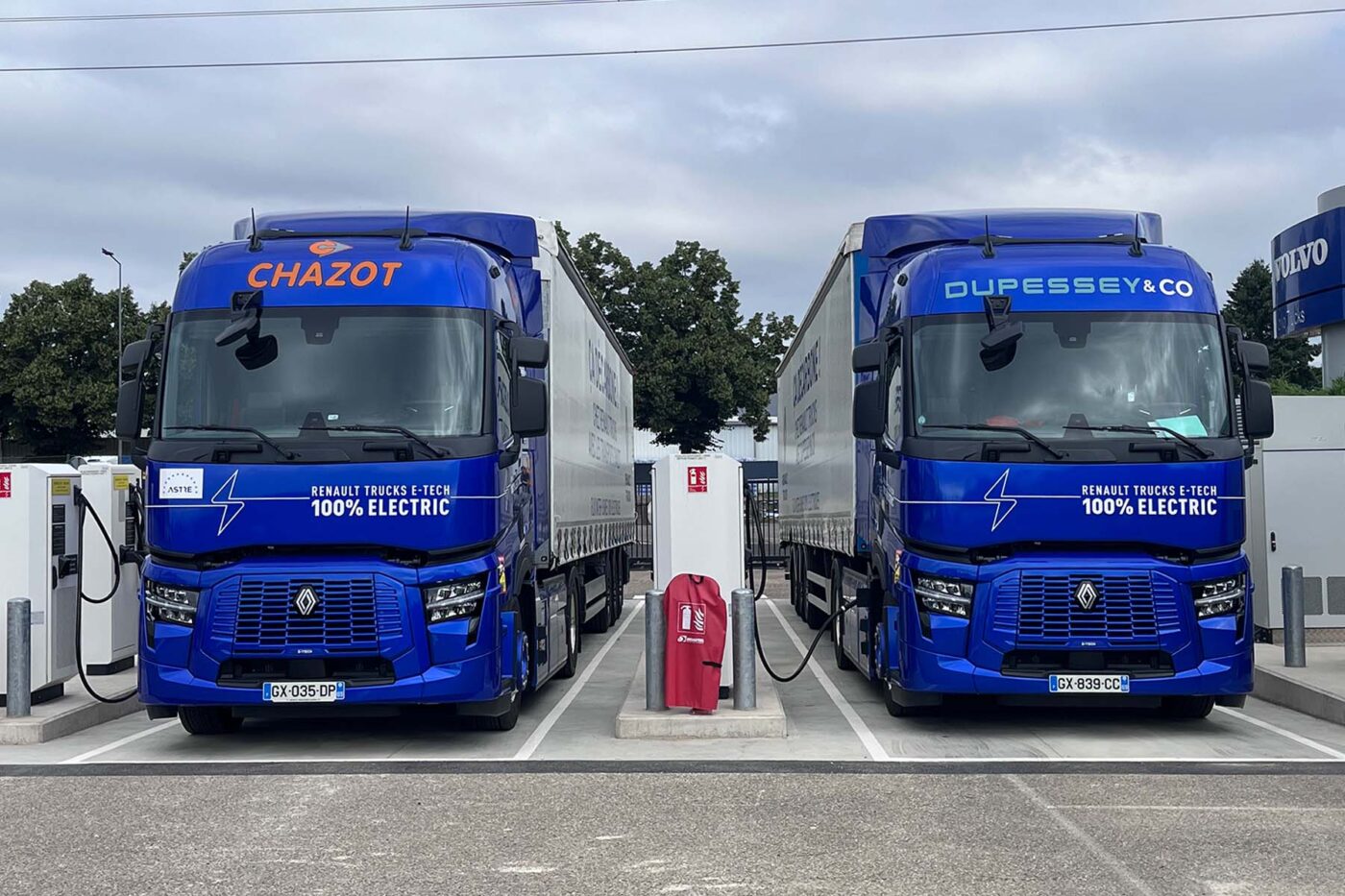
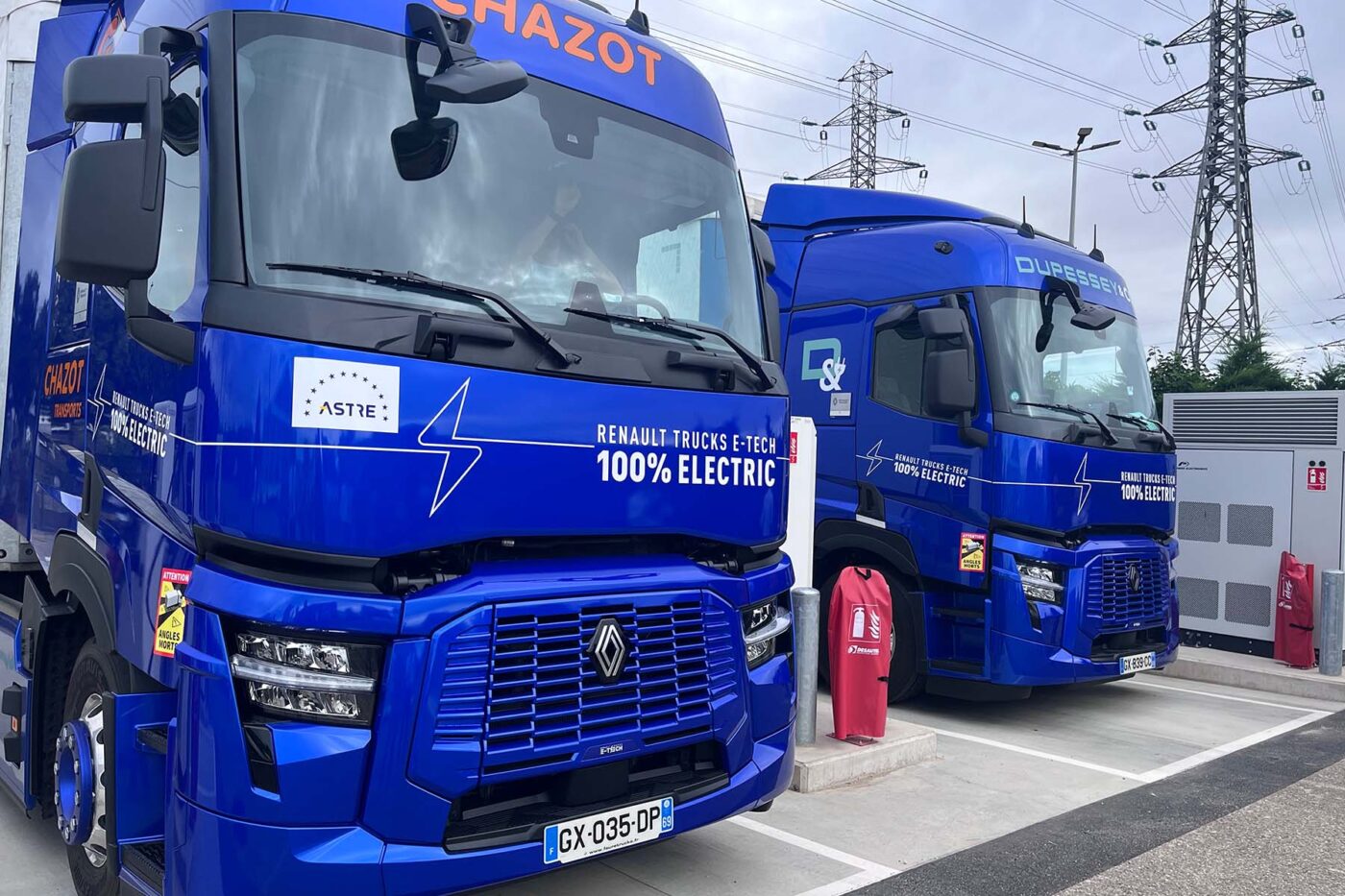
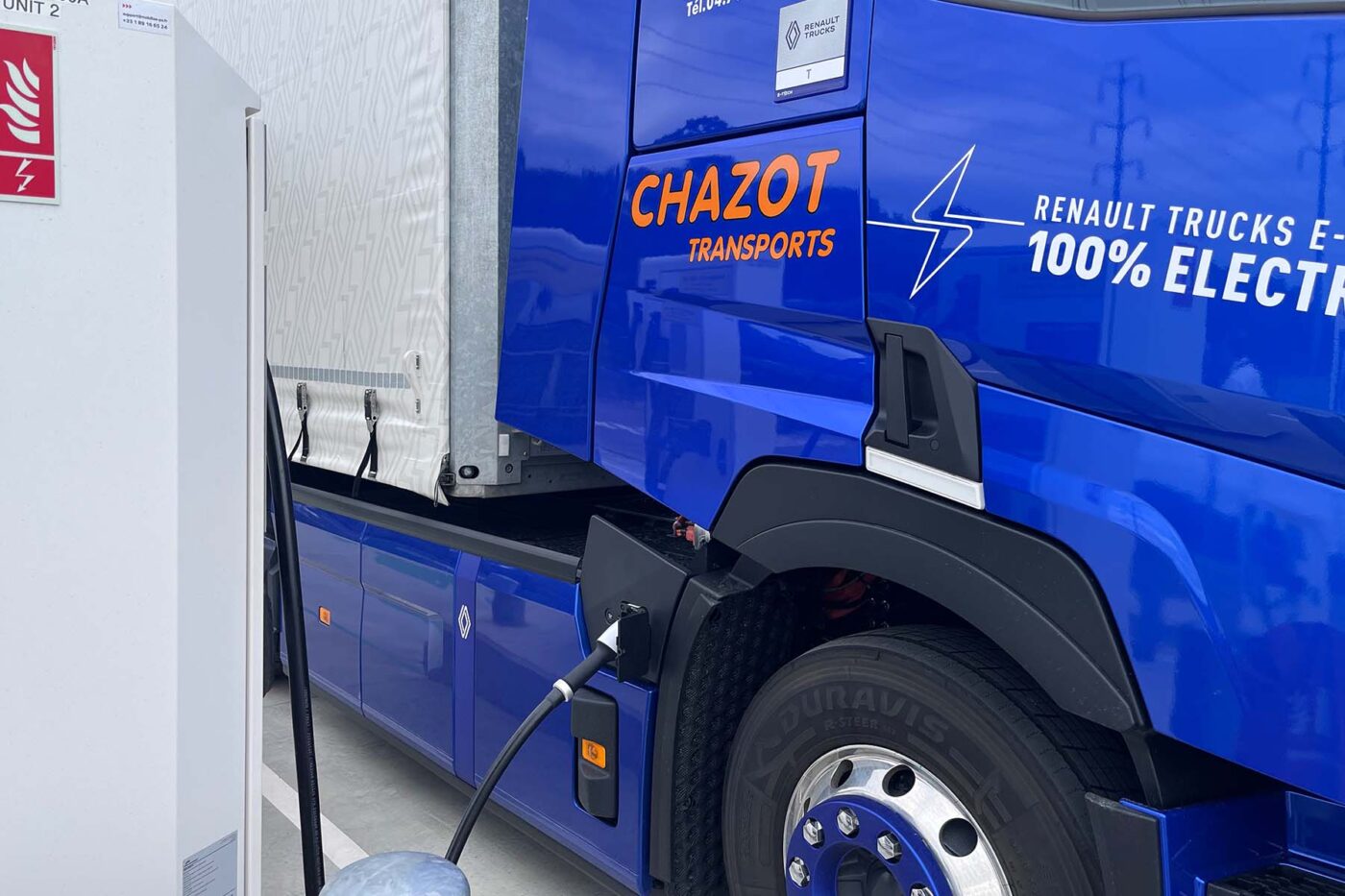
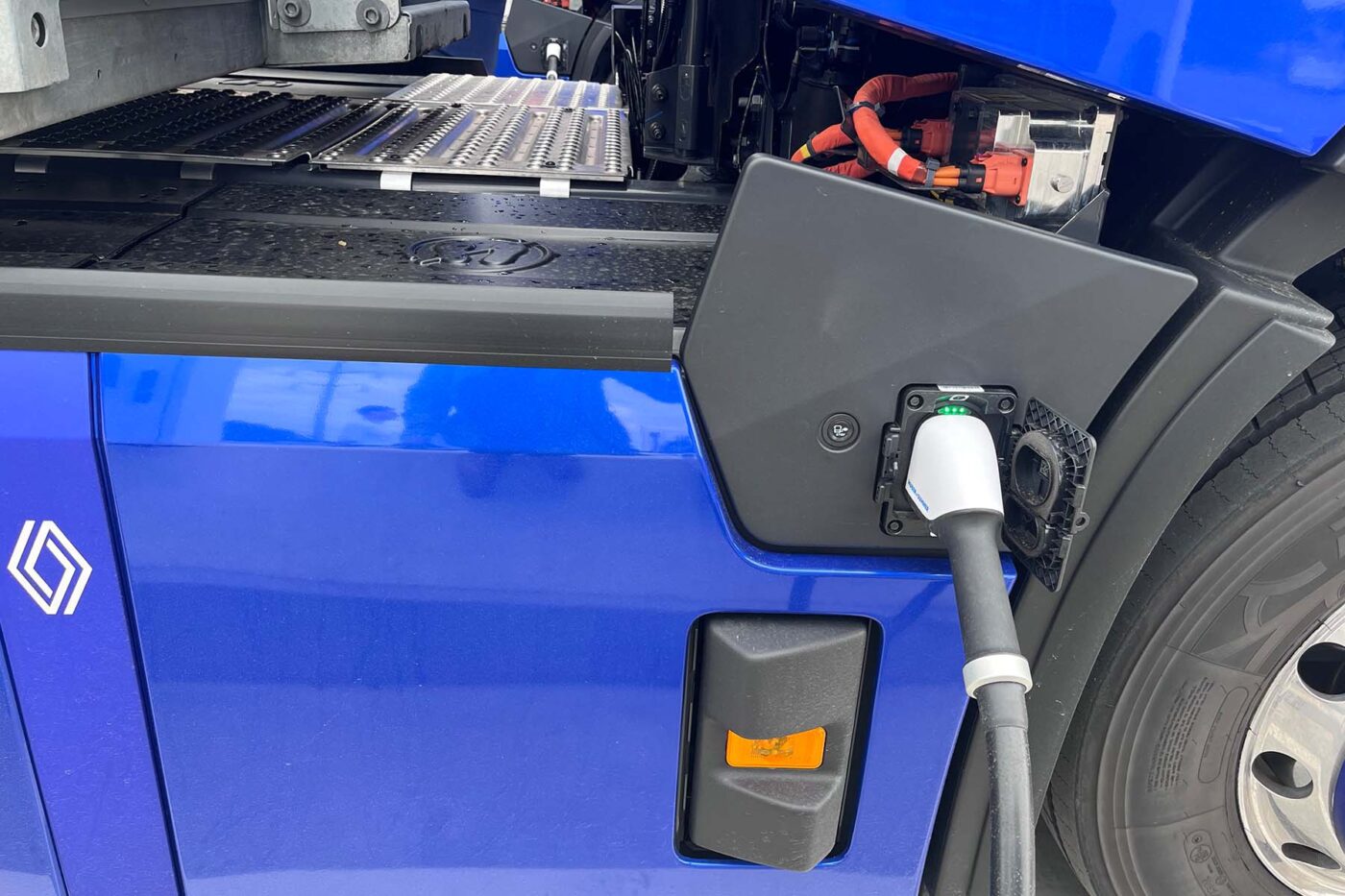
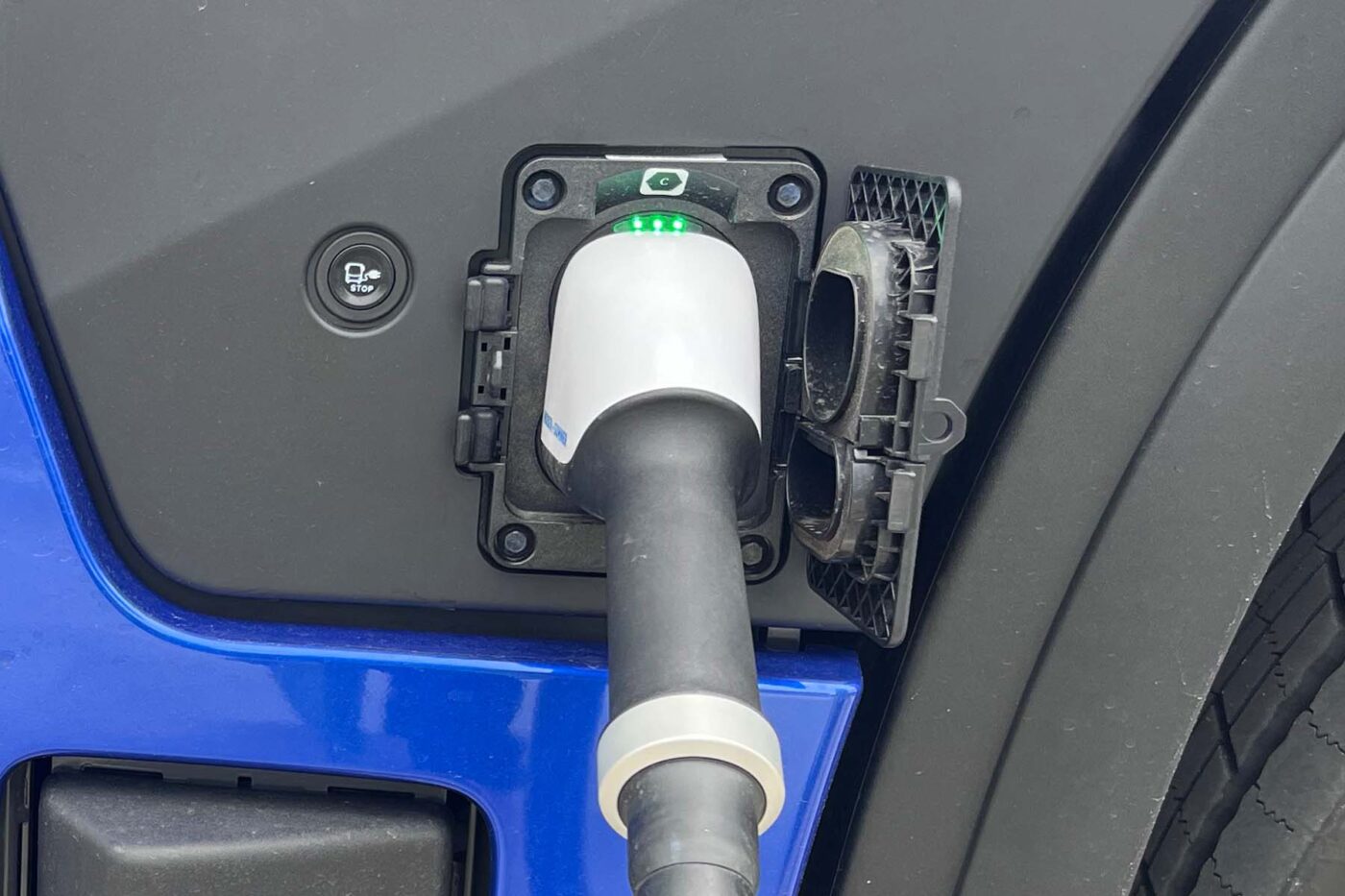
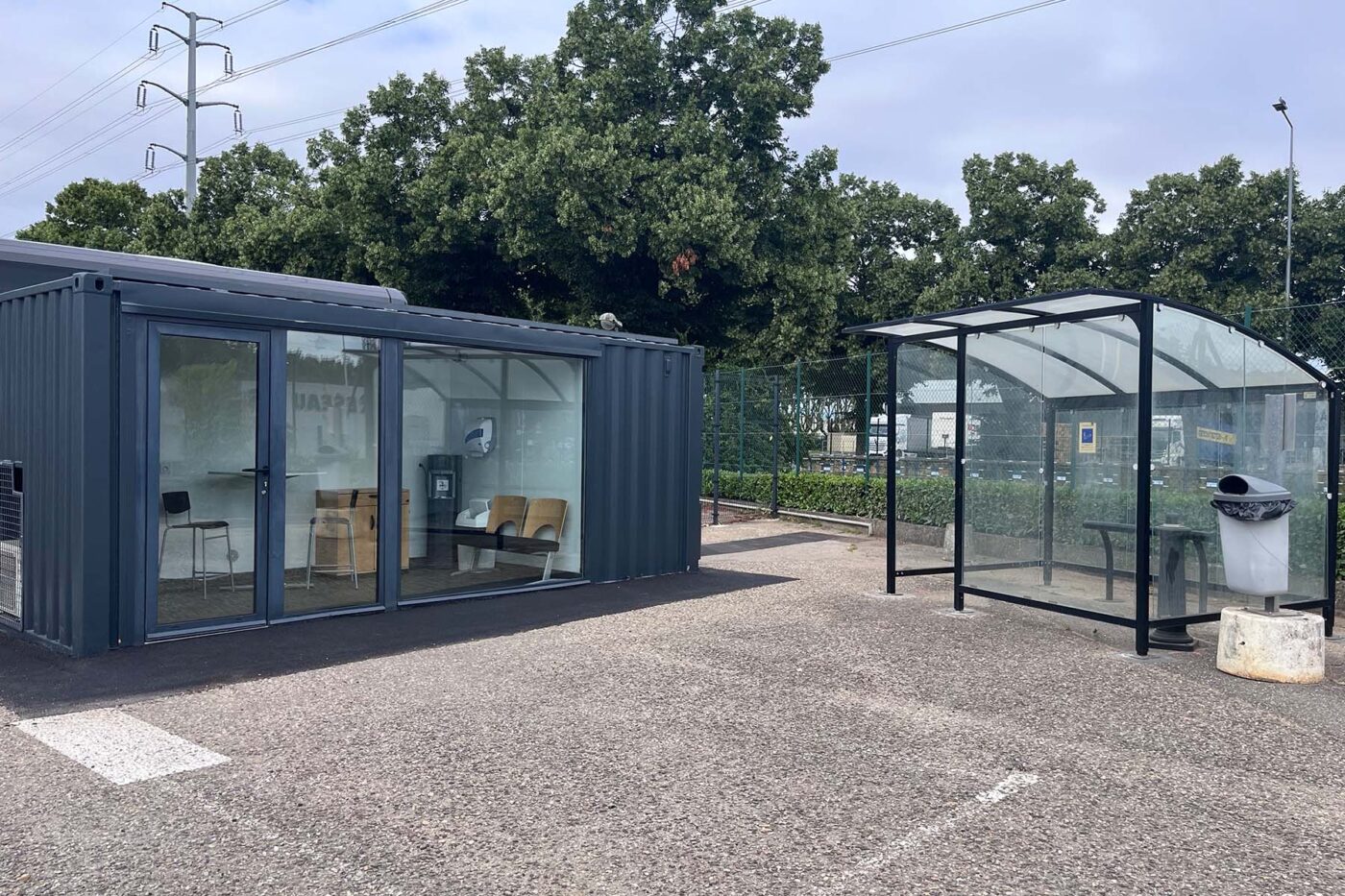
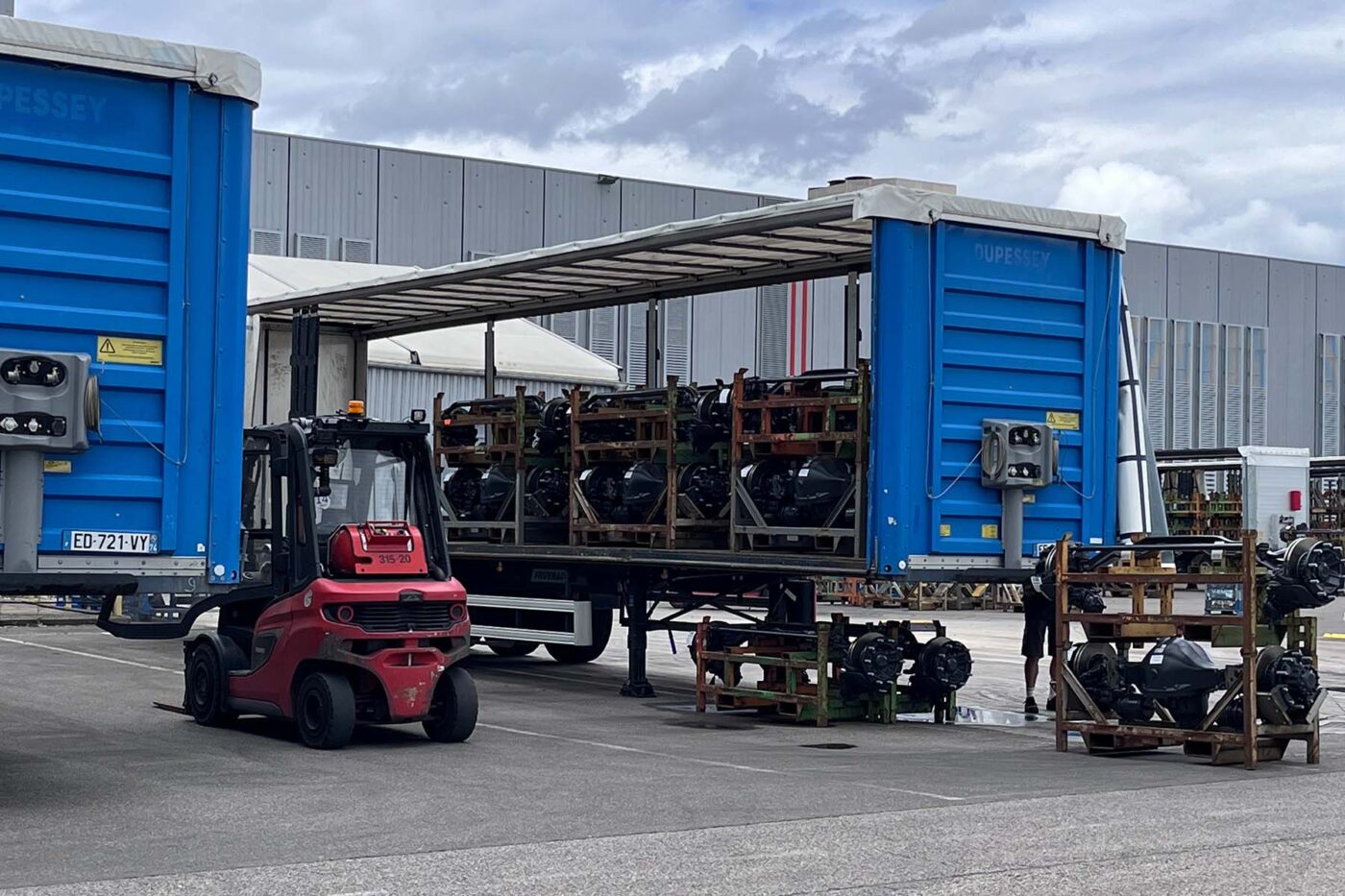
The charging station is located near the plant in Lyon. As the trucks only deliver a fully charged trailer to Bourg-en-Bresse and return an empty one without waiting for the trailer to be unloaded (and vice versa), Renault decided not to charge the trucks at one of its plants. The manufacturer thus installed two 360 kW terminals (each with two charging points) from Power Electronics at the Saint-Priest site.
Renault Trucks is currently using five electric trucks for its internal logistics. However, it states that the number could be increased to seven if required. The haulage companies Dupessey&Co Group and Transports Chazot are responsible for inter-regional distribution.




0 Comments